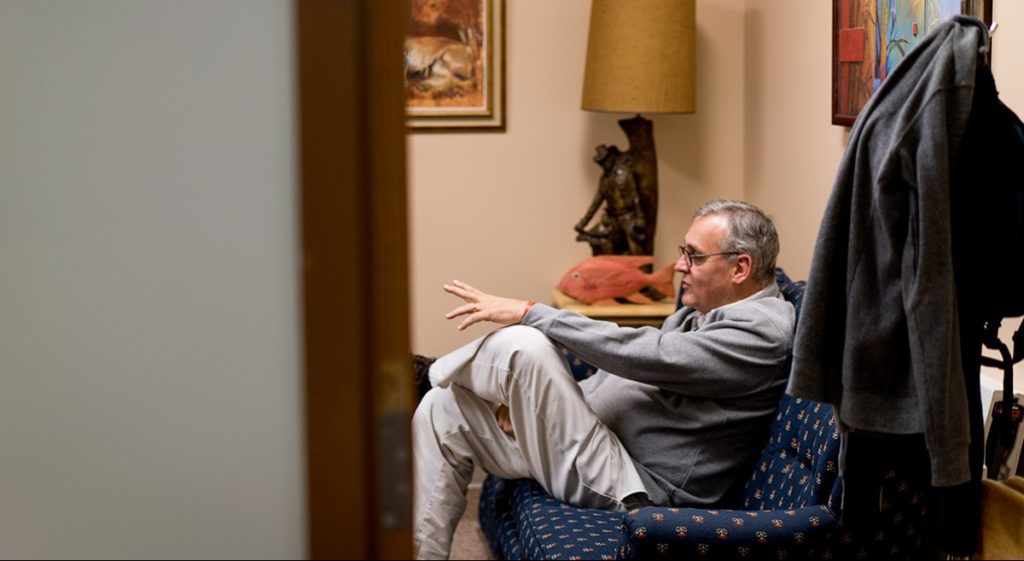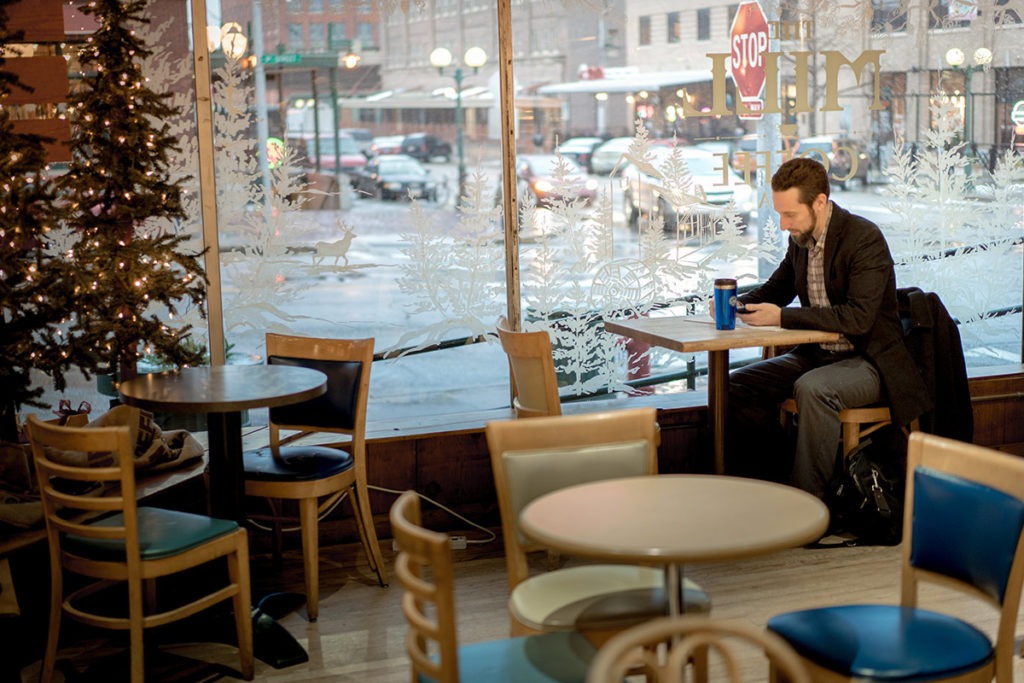
In 1969 he was chosen to travel and sing at venues around the world with a popular group called Up with People.
In 1975 he graduated from Pepperdine University on a full-ride scholarship.
In 1978 he received his MBA from Pepperdine.
In 1990 he managed a Kentucky-based company where he was making six figures and drove a Saab convertible.
“Now, I’m here,” said Pastor Tom Barber, CEO at the People’s City Mission.
Wait, what?
Pastor Tom casually plotted out his career history like he was reading off his resume. He’s straightforward like that, and not one to get caught up in the could-haves or would-haves of his past.
Tom laid out his career so plainly that I had to stop him and circle back to why and how he transitioned from big-time businessman to city mission visionary, and that’s where the story got interesting.
After graduating from college, Tom planned to work in full-time ministry, but thought he’d try his hand at the business world first. To his surprise, he was extremely successful. He quickly latched on to the principles and skills he needed to lead people and happily worked his way up a corporate ladder he never imagined himself climbing.
He was wealthy. His kids went to private school, he and his wife owned expensive cars and a lavish house – he was providing for his family and then some.
But in 1992 something just felt off.
Tom said it’s hard to explain, but he knew God was nudging him toward ministry again, and his wife felt the same way. So, they talked to their pastor. He told them about a job opening at Christ’s Place Church in Lincoln, Nebraska.
After an interview that went better than he expected and a surprisingly generous offer was made on their beautiful home, Tom said he knew it was time to move to Nebraska.
For the next decade or so, Tom worked at Christ’s Place Church, started a college ministry and worked as a marketing professor… and then he heard about the job opening at the People’s City Mission.
At the time it was a small mission housing 80 people and helping about two to three thousand people in the city each year. Tom looked at the Mission and saw lots of potential.
Today the Mission has 210 beds, a separate veterans program, the third largest free medical clinic in the U.S. and in 2015 they served 33,000 people in Lincoln.
Wait, what?
Tom rattled off these facts much like his career history, boiling the difference down to his business-like approach to running the Mission. He played to his strengths and it’s working.
From recycling programs, giving away donated goods and connecting donors with the homeless, it’s all been an intentional way to serve better and serve more people in the process.
We’ll be honest, Tom is proud of that shift in statistics over the past 12 years, but he attributes it to more than just his presence at the Mission.
“People say ‘Aren’t you unbelievable!’ and I say no, it’s what God wanted me to do,” he said. “I think people think more highly of me than they ought to, but God’s hand is on us and I’m just using business truths to run this place.”
For Tom, getting to this point was about timing. He waited, he went and he stayed where he knew God wanted him to be.
He was hippie Tommy in college, Mr. Barber in the corporate world and now Pastor Tom at the Mission – all titles that built on each other in a way that he never could have mapped out himself.
It wasn’t easy, he admitted that much. Leaving a certain lifestyle, moving to a place that was far from friends and family, trying to understand poverty in a new city, but looking back, it’s almost comical to see the way each element of his story fits into a larger story, he said.
Tom’s story is about being where God wanted him to be, about obeying and using his skills for the task at hand.
Many times his story didn’t make sense, to him or those who looked on with skepticism. But it was about becoming Pastor Tom, and Tom loves being Pastor Tom.
